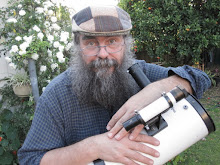Friday, December 03, 2021
Southern Skywatch December 2021 edition is now out!
The inset shows the telescopic view of Venus. Similar views will be seen throughout Australia at the equivalent local time (90 minutes after sunset, click to embiggen).
The December edition of Southern Skywatch is now up.
December 3; the thin crescent moon near Mars, low in the morning twilight. December 4; New Moon. December 4; perigee Moon. December 6; Crescent moon forms a line with Venus, Saturn and Jupiter. December 7; Venus is close to the crescent Moon. December 8; Moon between Saturn and Jupiter. December 9; waxing Moon close to Jupiter. December 10; waxing Moon forms a line with Jupiter, Saturn and Venus. December 11; First Quarter Moon. Morning December 14; Geminid meteor shower peaks. December 16-25; Comet C/2021 A1 Leonard visible. December 18; apogee Moon. December 19; Full Moon (apogee ”mini” moon). December 27; Last Quarter Moon. January 1 2022; Morning occultation of Mars .
Mercury is low in the evening twilight from the middle of this month of this month and encounters Venus. On the 27 Venus and Mercury can been seen low in the twilight half an hour after sunset together, and the pair are at their closest on the 29th (with Venus below).
Venus is easily visible at the beginning of the month in the evening sky from 30 minutes after sunset (I can see it as early as 5 minutes after sunset) until well after the sky is fully dark. Venus, Saturn and Jupiter make a nice line in the evening sky in December. Venus is at its greatest brilliance on the 4th, then rapidly moves to the horizon. Venus is a very obvious crescent in even small telescopes and will get thinner as it heads towards the horizon, by the end of the Month it may be visible as a crescent in binoculars.
Earth is at solstice on Wednesday the 22nd, when the day is longest.
Mars is low in the twilight until late in the month. On the 3rd the thin crescent moon is close to Mars. On January 1, 2002 Mars is occulted by the thin crescent Moon.
Jupiter is readily visible from astronomical twilight and is now lowering into the western evening sky. Jupiter still bright and an excellent object in even small telescopes, but the window for telescopic observation is closing. At the beginning of this month at astronomical twilight, we can enjoy the sight the sight of bright Venus in the west forming a line with Saturn and bright Jupiter in the north-west. Once Venus has set Jupiter dominates the night sky. by the end of the Month Mercury has replaced Venus.
Saturn can be easily seen from nautical twilight (an hour after sunset) during December. Saturn is telescopically best at astronomical twilight, when the sky is fully dark, but from mid-month it is too close to the horizon for good telescopic observation.
The moon visits the bright planets in Turn, Venus on the 7th, Saturn on the 8th then Jupiter on the 9th. The Moon will be close enough to Jupiter for the pair to fit in the field of view of 10x50 binoculars. The sight of the three bight planets together with the Moon will be particularly beautiful.
Moon: Perigee December 4 and at apogee December 18
Labels: southern skywatch





 Click to read about or order
Click to read about or order Click to read about or order
Click to read about or order Click to read about or order
Click to read about or order Click to read about or order
Click to read about or order




